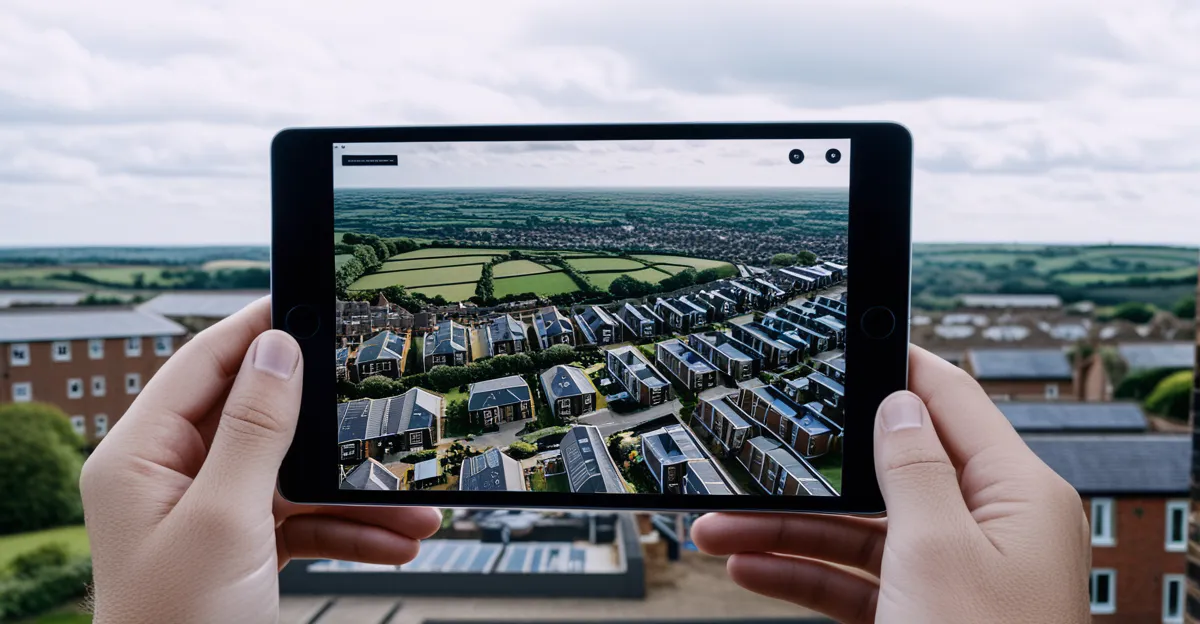Overview of Technological Advances in Real Estate
Technological evolution is reshaping the real estate landscape significantly. Technology in Real Estate encompasses advancements like property management software, data analytics, and virtual viewings, all aimed at streamlining processes. In the UK Real Estate Innovations sector, there’s a noticeable shift towards Proptech—property technology innovations that enhance efficiency and decision-making.
Currently, the UK property market is gradually embracing these technological innovations. However, the adoption rate varies. While some firms integrate cutting-edge solutions, others are still in the process of transitioning from traditional methods to digital platforms. Proptech is becoming crucial as it provides tools that not only simplify transactions but also optimize investment strategies.
Also read : How Can Real Estate Investment Drive Economic Growth in the UK?
The importance of technology lies in its ability to enhance investment strategies. By utilizing these technological advancements, investors can perform comprehensive market analyses, leading to informed decisions. Thus, technology is not just a facilitator but a vital component in the ongoing transformation of the real estate sector.
Key Technologies Transforming Real Estate Investments
In recent years, technological innovation has become a game changer in real estate, particularly through the adoption of AI in Real Estate. By leveraging advanced algorithms, AI enhances market analysis, making it possible for investors to sift through massive data sets efficiently, predict market trends, and make informed decisions. This technology marvellously streamlines the cumbersome process of data analysis and supports decision-making by providing accurate and timely insights into market dynamics.
Also to discover : What Are the Biggest Challenges Facing the UK Real Estate Market in 2024?
Artificial Intelligence in Market Analysis
The implementation of AI technologies in market analysis has redefined how investors interact with real estate data. Through machine learning models, AI can identify patterns and forecast property values, offering enhanced insights into resale potential and long-term profitability. This not only increases the precision of investment choices but also allows investors to optimise their real estate portfolios more effectively.
Blockchain for Secure Transactions
Another revolutionary development is the use of Blockchain in real estate, which addresses concerns over transaction security and transparency. With Blockchain, every transaction is recorded on a decentralised ledger, ensuring each entry is tamper-proof and verifiable. This technology is pivotal in mitigating fraud risks, providing a crucial layer of security for investors and ensuring that every party in a transaction is accountable.
Proptech Platforms for Investment Management
Proptech Solutions have further enabled investors to manage their portfolios with unprecedented efficiency. These platforms offer a comprehensive suite of tools for tracking property performance, managing assets, and facilitating communications between stakeholders. By integrating these technologies, investors can achieve streamlined property management, ensuring their investments are always aligned with their financial goals. The convergence of AI, Blockchain, and Proptech is undeniably reshaping the landscape of real estate investment.
Case Studies of Successful Technology Integration
The UK real estate landscape has seen several technology success stories as firms embrace digital transformation. One remarkable instance involves a London-based development company that integrated Proptech solutions and successfully reduced operational costs by 20%. This was achieved through automated property management systems and data-driven decision-making, which streamlined processes and enhanced efficiency.
In another illustration, a leading real estate agency adopted AI-driven market analysis tools that improved their property valuations’ accuracy. By utilising machine learning algorithms, they not only identified market trends but also predicted property value fluctuations months in advance, boosting investment returns significantly. This innovative approach to data handling enabled them to offer more competitive and informed advice to clients, setting a new standard within the industry.
These real estate case studies highlight key lessons: integrating technology requires strategic planning and a deep understanding of tools that align with specific business objectives. Moreover, companies that successfully implement these innovations often experience improved client satisfaction, optimised resource allocation, and enhanced market positioning. This reinforces the potential of technology to revolutionise real estate, leading to sustained growth and competitive advantage.
Challenges and Limitations of Technology in Real Estate
As technology becomes more entrenched in the real estate sector, it brings along its own Tech Challenges in Real Estate. Investors often encounter obstacles, including high initial costs, limited access to technical expertise, and compatibility issues with existing systems. These challenges can hinder the effective implementation of new technologies.
Moreover, the Limitations of Innovation in real estate often stem from regulatory hurdles. Navigating these complex legal landscapes requires significant time and resources, as compliance issues demand continuous updates and adherence to evolving standards. This can delay technology adoption and decrease the speed of innovation in the sector.
There’s also a substantial barrier in terms of adoption due to resistance from within the industry. Real estate has traditionally been slow to change, with many professionals hesitant to move away from tried-and-tested methods. This Resistance to Change often results in a reluctance to adopt Proptech solutions, even when benefits are evident. For the industry to capitalise on technological advancements fully, overcoming these barriers is crucial.
Future Predictions for Technology in Real Estate
As the real estate sector continues to evolve, predictions for investors regarding the role of technology are becoming increasingly crucial. Experts anticipate that the future of real estate will be heavily influenced by technology trends that redefine how investments are made and managed. It’s expected that digital platforms will become central in optimizing property portfolios and mitigating risks through real-time data analysis.
Emerging technologies such as the Internet of Things (IoT) and augmented reality (AR) are poised to revolutionize property management and customer engagement. These innovations are likely to lead to more interactive buying experiences, increased automation, and a focus on sustainability. This, in turn, will encourage investors to adjust their strategies to stay competitive.
In terms of investor strategies, adaptation to AI-driven predictive analytics will be vital. Technology will enable investors to anticipate and respond to market shifts with greater agility. Implementing these advanced tools will require proactive engagement with technology, as the ability to harness data effectively becomes indispensable.
Furthermore, the integration of Proptech will continue to escalate, as investors increasingly seek efficient, secure, and scalable solutions. This trend suggests a movement toward more collaborative and transparent platforms that enhance connectivity among stakeholders. Staying abreast of these technological changes will be key for investors aiming to leverage the full potential of emerging trends.
Actionable Insights for Investors
In the ever-evolving realm of real estate, the incorporation of Investment Strategies aligned with Real Estate Technology Adoption is crucial. As the sector progresses, investors must consider several key factors to maximize their returns and stay competitive in the market.
To integrate technology effectively, investors should first focus on identifying platforms that match their specific needs. Proptech solutions, for instance, provide tools that simplify processes and enhance decision-making. By utilizing data analytics and AI-driven insights, investors can gain a competitive edge through better market predictions and optimized portfolio management.
Moreover, it is vital for investors to explore emerging technologies such as Blockchain Applications and IoT, as these innovations provide enhanced security, transparency, and real-time data access. This will not only safeguard investments but also streamline property management operations.
To stay ahead of technology trends, continuous learning and adaptation are essential. Investors should seek education through industry conferences, workshops, and online courses focused on the latest advancements. Networking with tech-savvy professionals can also provide valuable guidance and insights.
In summary, successfully integrating technology into investment strategies requires a proactive approach. By leveraging the right tools and platforms, embracing new technologies, and maintaining a forward-thinking mindset, investors can ensure sustainable growth and resilience in the dynamic real estate landscape.


